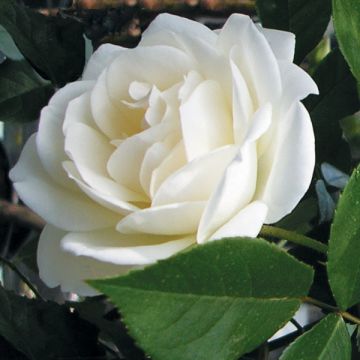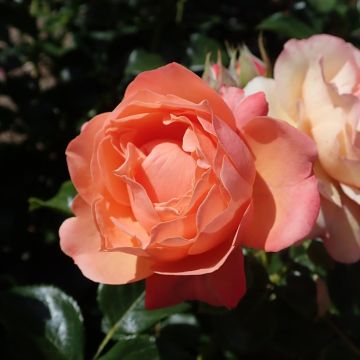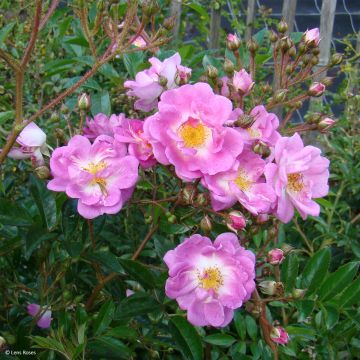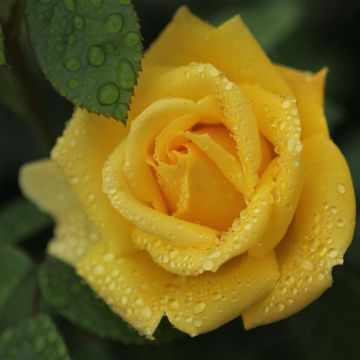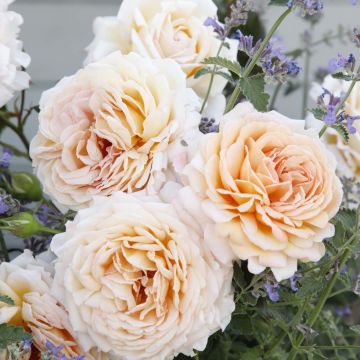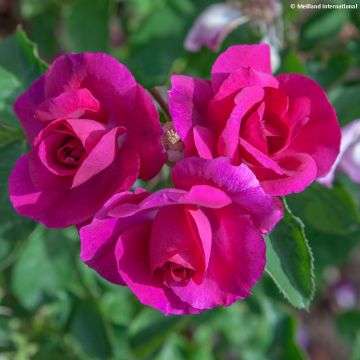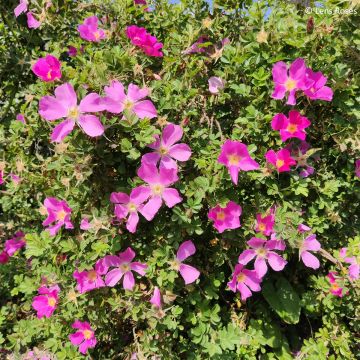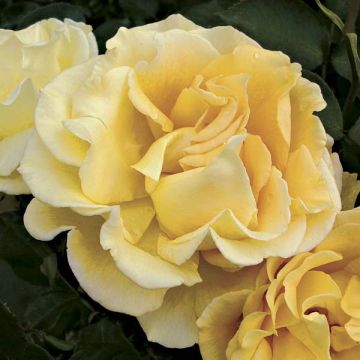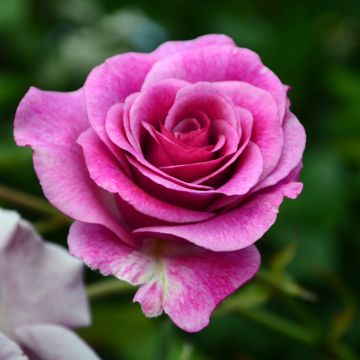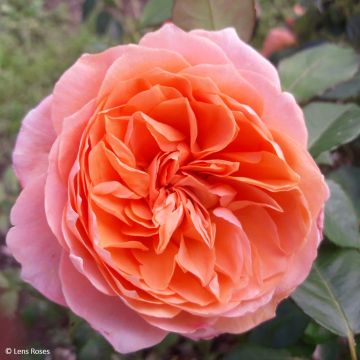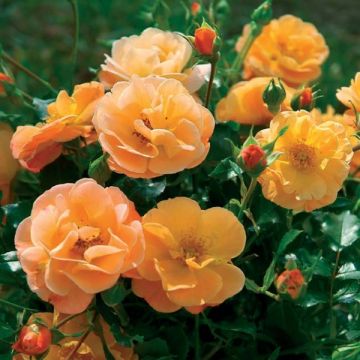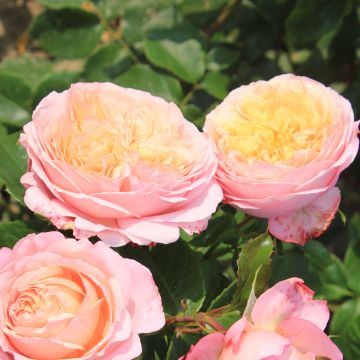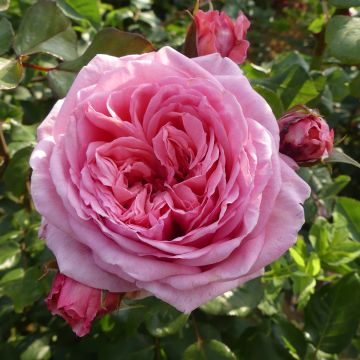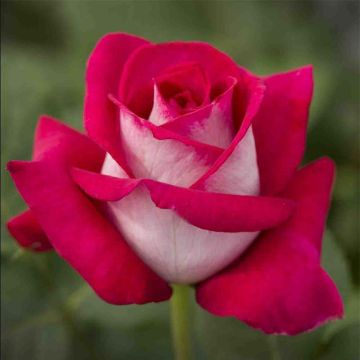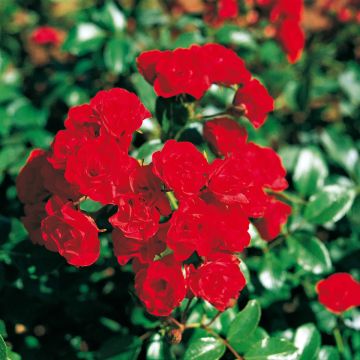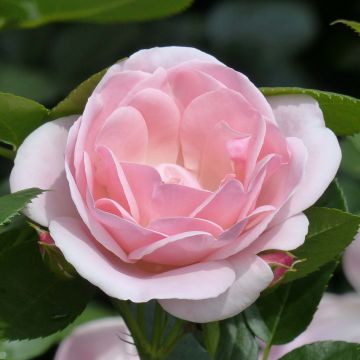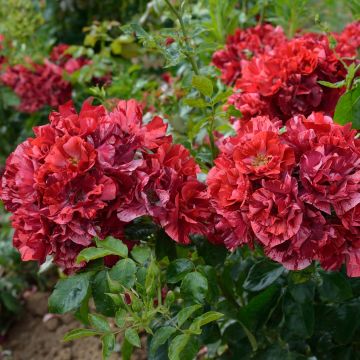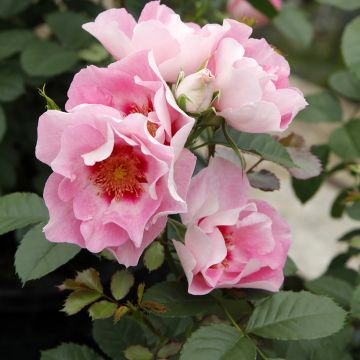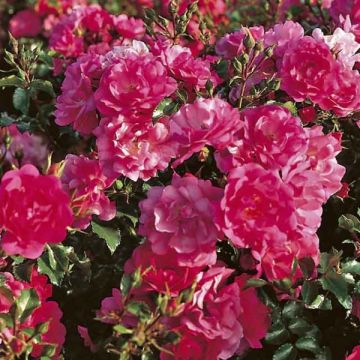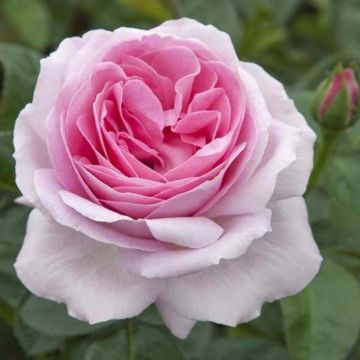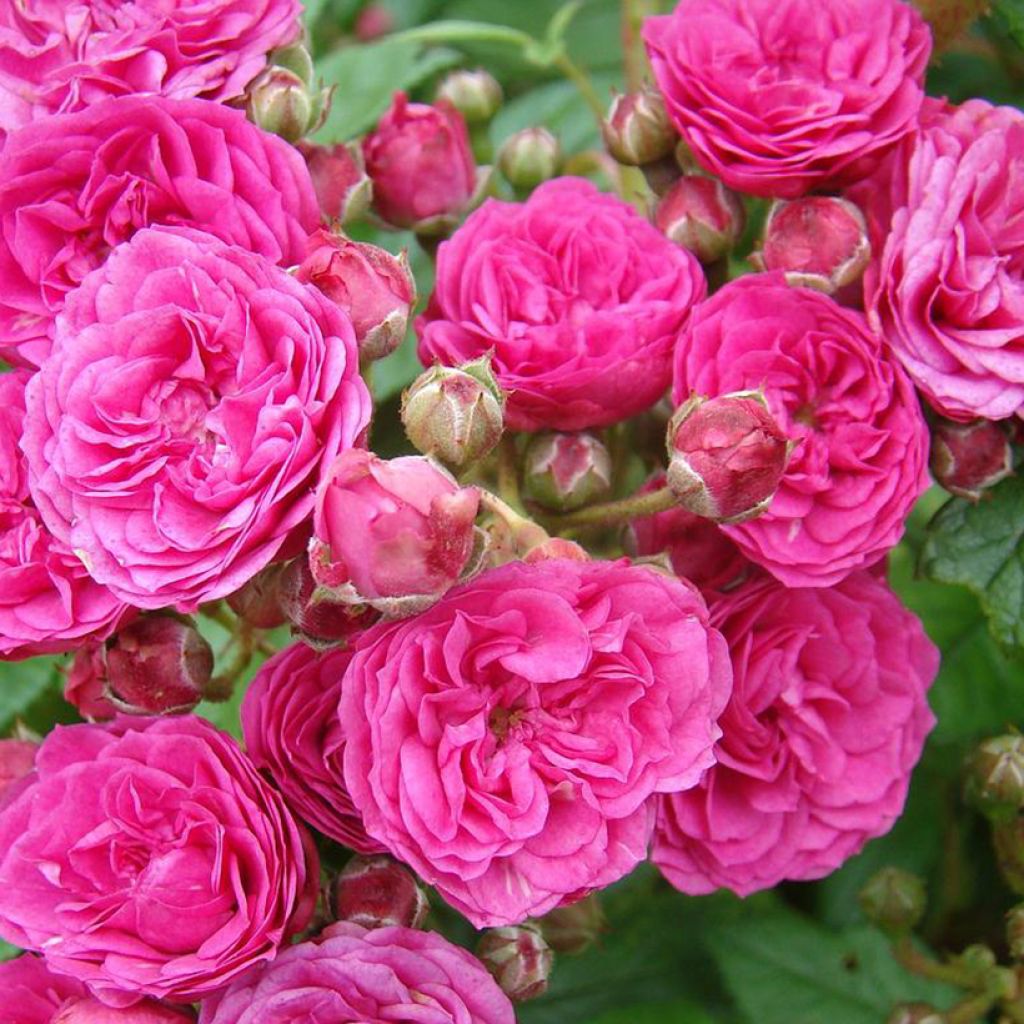

Rosier arbustif Dinky
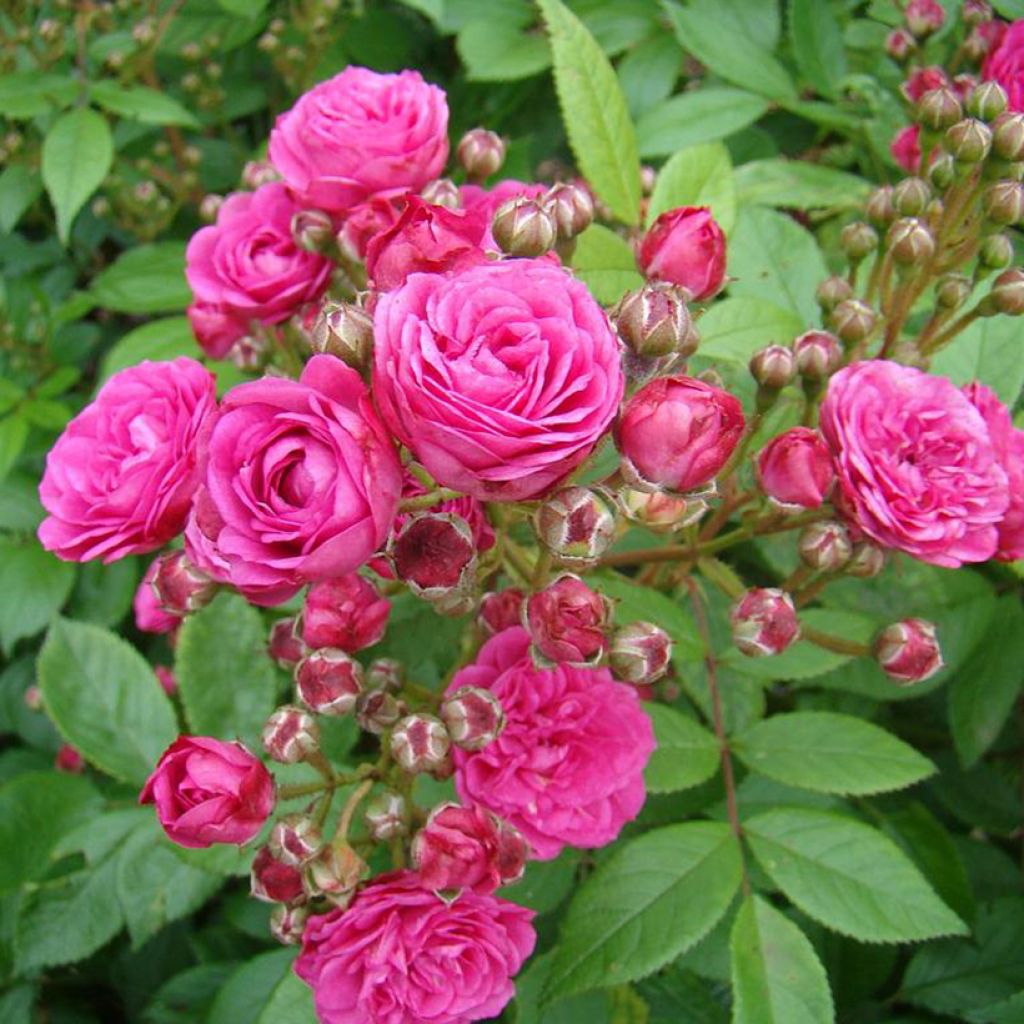

Rosier arbustif Dinky
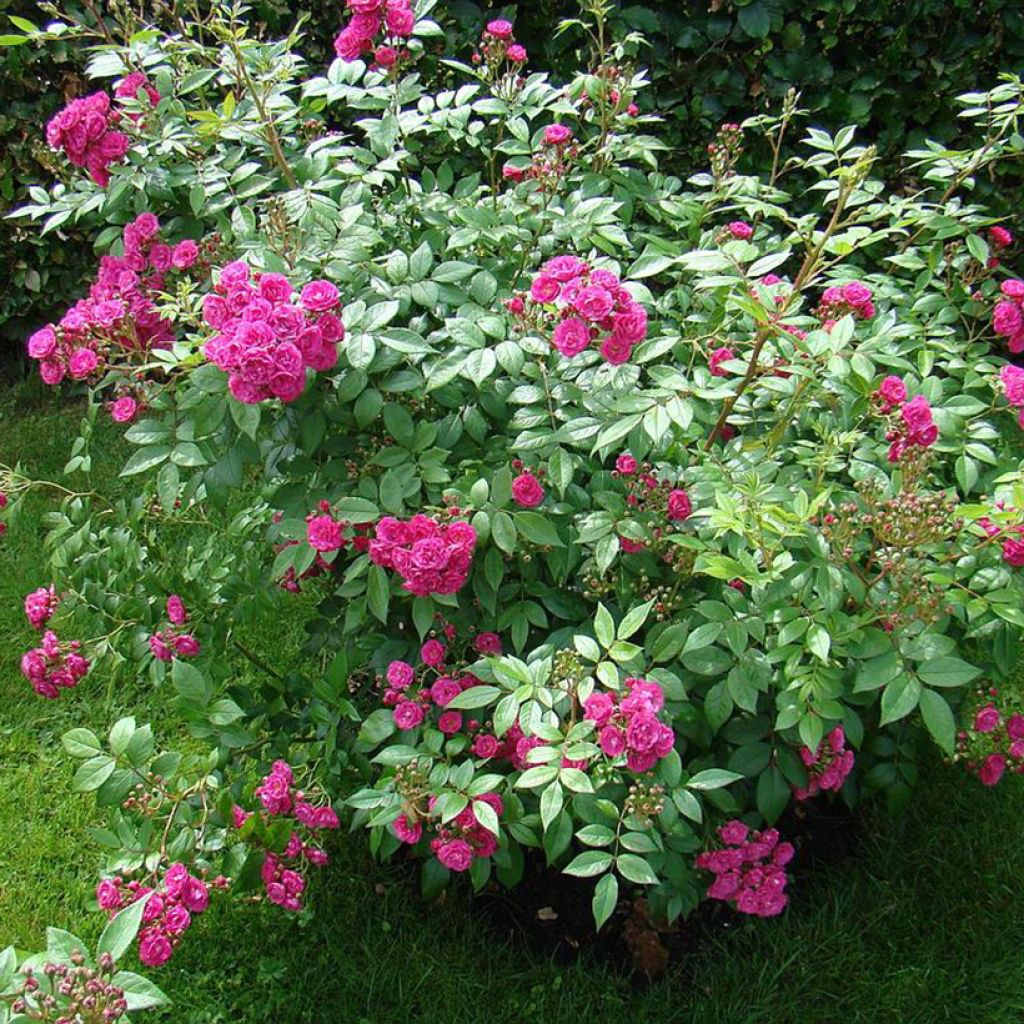

Rosier arbustif Dinky
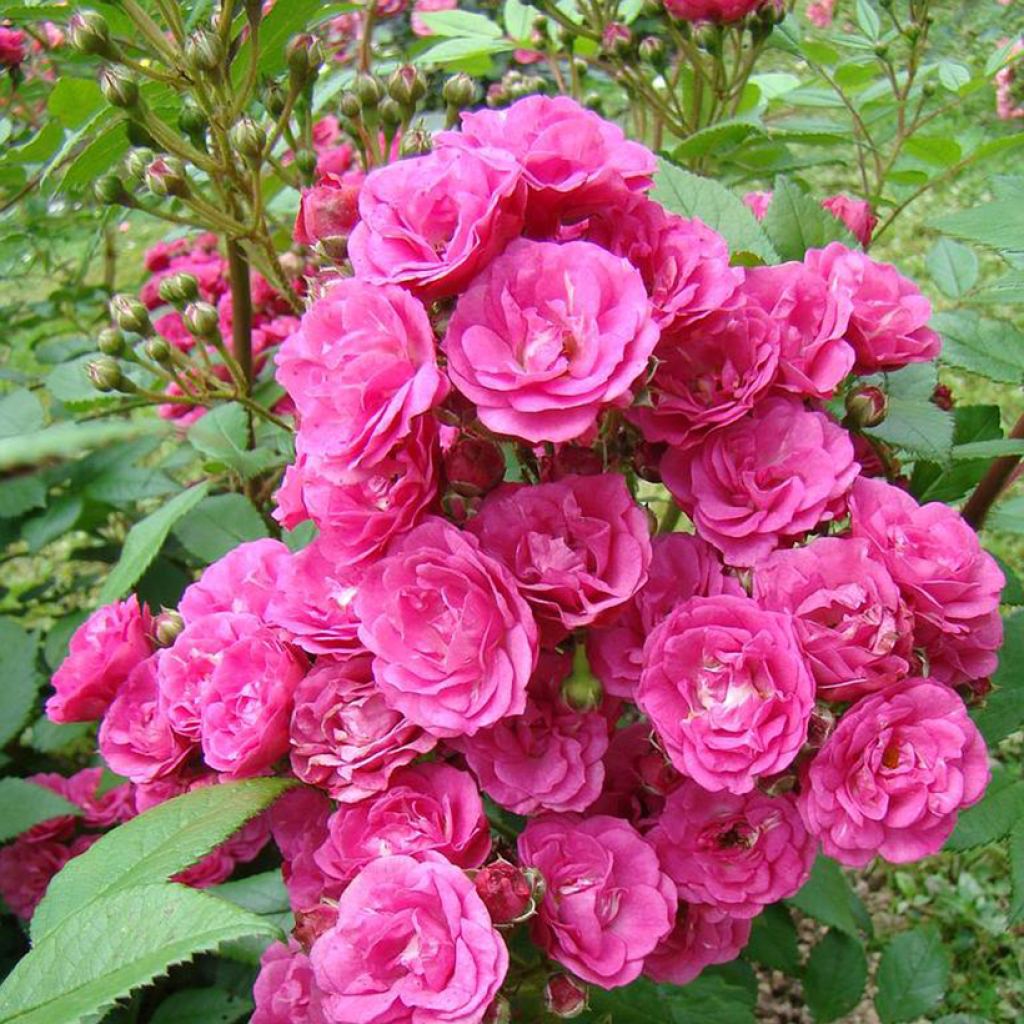

Rosier arbustif Dinky
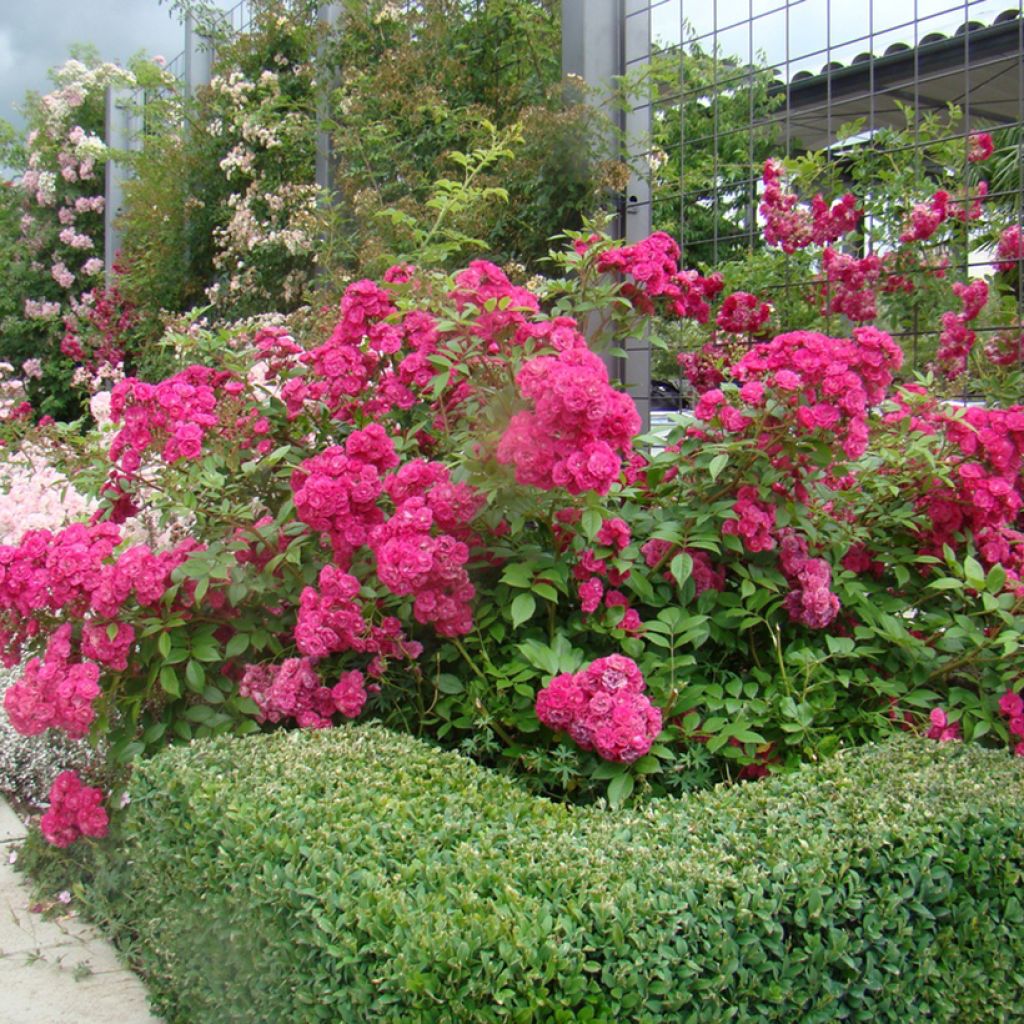

Rosier arbustif Dinky
Rosa x moschata Dinky
Rosa x moschata Dinky VELheav
Rose [Dinky]
Thanks to the individuals (for order preparation and shipping), the received rose bush appears healthy. Planted close to the 'Celina' variety, I am now patiently waiting for it to take root... (or not?)
Thierry, 25/08/2023
This item cannot be shipped to the selected country
Delivery charge from €5.90
Delivery charge from €5.90
More information
Schedule delivery date,
and select date in basket
This plant carries a 24 months recovery warranty
More information
We guarantee the quality of our plants for a full growing cycle, and will replace at our expense any plant that fails to recover under normal climatic and planting conditions.
From €5.90 for pickup delivery and €6.90 for home delivery
Express home delivery from €8.90.
From €5.90 for pickup delivery and €6.90 for home delivery
Express home delivery from €8.90.
Does this plant fit my garden?
Set up your Plantfit profile →
Description
Rosa Dinky has been awarded multiple times in international competitions for its undeniable qualities. It is a modern hybrid with a slightly trailing habit, with late and repeat-flowering in September, and almost thornless stems. Its large clusters of deep pink roses withstand the rain well. These beautiful clusters, which can contain up to 180 pompom flowers, weigh down the branches, further accentuating the fountain-like habit of the bush. This versatile rose can be planted in borders, as a standalone specimen, trained on a small structure like an obelisk or a pyramid, or even grown as a standard rose. It also adapts well to container cultivation. Its cut flowers hold up well in a vase.
Rosa Dinky 'VELheav' is a Belgian creation by L. Lens dating back to 2002. It is derived, among others, from the musk rose (Rosa x moschata), a spontaneous hybrid probably originating from Asia Minor or the Middle East. Similar to polyanthas and floribundas, roses in this family produce flowers in clusters, but their colours are more refined and they have a more flexible and graceful habit. Rosa Dinky has a rapid growth rate. It develops long, flexible stems that are sometimes villous. The stems are almost without thorns. If left unpruned, this bush can reach about 1.15m (4ft) in height with a 1m (3ft) spread. Its leaves are divided into slightly glossy elliptical leaflets, with a very fresh green colour. The deciduous foliage is absent in winter. It is highly resistant to rose diseases. Flowering begins between late June and early July, with sporadic blooms throughout summer. The September rebloom is generous. It takes the form of long, large pyramidal clusters composed of numerous small double flowers with a diameter of 4cm (2in). Each flower opens in a deep pink shade that remains fairly stable over time. The scent of the flowers is very subtle. The hardiness of this rose is estimated at -15°C (5°F).
Rosa Dinky thrives in well-prepared soil. It tolerates poor soils. It does not require pruning other than the removal of dead wood. Plant it in a rose border, or in a small flowering hedge with other botanical or old roses (Cornelia, Felicia, Bouquet Parfait, R. complicata), modest-sized lilacs (Syringa microphylla 'Superba'), mock oranges, or even Japanese quinces. Also consider combining it with a climbing clematis from the viticella group, which is just as easy to grow.
Awards:
- Courtrai, 2002, Silver Medal
- Paris, 2003, Certificate of Merit
- Baden-Baden, 2003, Gold Medal
- Baden-Baden, 2003, Ereprijs Association of German Friends of Roses
- Le Roeulx, 2003, Gold Medal
- Le Roeulx, 2003, Special Prize for 40 Years of Le Roeulx
- Geneva, 2004, Gold Medal
- Lyon, 2005, Gold Medal
- Culture Group for Roses and Rose Rootstocks NL, 2018, Excellence Rose
- Rochfords International Rose Trials, 2021, Rose of the Day
Report an error about the product description
Plant habit
Flowering
Foliage
Botanical data
Rosa
x moschata
Dinky VELheav
Rosaceae
Rose [Dinky]
Cultivar or hybrid
Other Polyantha clustered Roses
Planting and care
Work the soil to a depth of 25 cubic cm, crumble the soil well, and place a bottom amendment such as dried blood or dehydrated horn in the planting hole. Position your plant, removed from its pot, covering the top of the root ball with 3cm (1in) of soil. Fill in the hole and water thoroughly to remove any air pockets. Water regularly for a few weeks to facilitate root development. Provide your rose with special rose fertiliser to stimulate flowering.
Roses are often stained or unsightly at the end of summer, but this will not hinder their development. These spots are a natural phenomenon and will not harm the rose.
Planting period
Intended location
Care
-
, onOrder confirmed
Reply from on Promesse de fleurs
Roses by producer
Haven't found what you were looking for?
Hardiness is the lowest winter temperature a plant can endure without suffering serious damage or even dying. However, hardiness is affected by location (a sheltered area, such as a patio), protection (winter cover) and soil type (hardiness is improved by well-drained soil).

Photo Sharing Terms & Conditions
In order to encourage gardeners to interact and share their experiences, Promesse de fleurs offers various media enabling content to be uploaded onto its Site - in particular via the ‘Photo sharing’ module.
The User agrees to refrain from:
- Posting any content that is illegal, prejudicial, insulting, racist, inciteful to hatred, revisionist, contrary to public decency, that infringes on privacy or on the privacy rights of third parties, in particular the publicity rights of persons and goods, intellectual property rights, or the right to privacy.
- Submitting content on behalf of a third party;
- Impersonate the identity of a third party and/or publish any personal information about a third party;
In general, the User undertakes to refrain from any unethical behaviour.
All Content (in particular text, comments, files, images, photos, videos, creative works, etc.), which may be subject to property or intellectual property rights, image or other private rights, shall remain the property of the User, subject to the limited rights granted by the terms of the licence granted by Promesse de fleurs as stated below. Users are at liberty to publish or not to publish such Content on the Site, notably via the ‘Photo Sharing’ facility, and accept that this Content shall be made public and freely accessible, notably on the Internet.
Users further acknowledge, undertake to have ,and guarantee that they hold all necessary rights and permissions to publish such material on the Site, in particular with regard to the legislation in force pertaining to any privacy, property, intellectual property, image, or contractual rights, or rights of any other nature. By publishing such Content on the Site, Users acknowledge accepting full liability as publishers of the Content within the meaning of the law, and grant Promesse de fleurs, free of charge, an inclusive, worldwide licence for the said Content for the entire duration of its publication, including all reproduction, representation, up/downloading, displaying, performing, transmission, and storage rights.
Users also grant permission for their name to be linked to the Content and accept that this link may not always be made available.
By engaging in posting material, Users consent to their Content becoming automatically accessible on the Internet, in particular on other sites and/or blogs and/or web pages of the Promesse de fleurs site, including in particular social pages and the Promesse de fleurs catalogue.
Users may secure the removal of entrusted content free of charge by issuing a simple request via our contact form.
The flowering period indicated on our website applies to countries and regions located in USDA zone 8 (France, the United Kingdom, Ireland, the Netherlands, etc.)
It will vary according to where you live:
- In zones 9 to 10 (Italy, Spain, Greece, etc.), flowering will occur about 2 to 4 weeks earlier.
- In zones 6 to 7 (Germany, Poland, Slovenia, and lower mountainous regions), flowering will be delayed by 2 to 3 weeks.
- In zone 5 (Central Europe, Scandinavia), blooming will be delayed by 3 to 5 weeks.
In temperate climates, pruning of spring-flowering shrubs (forsythia, spireas, etc.) should be done just after flowering.
Pruning of summer-flowering shrubs (Indian Lilac, Perovskia, etc.) can be done in winter or spring.
In cold regions as well as with frost-sensitive plants, avoid pruning too early when severe frosts may still occur.
The planting period indicated on our website applies to countries and regions located in USDA zone 8 (France, United Kingdom, Ireland, Netherlands).
It will vary according to where you live:
- In Mediterranean zones (Marseille, Madrid, Milan, etc.), autumn and winter are the best planting periods.
- In continental zones (Strasbourg, Munich, Vienna, etc.), delay planting by 2 to 3 weeks in spring and bring it forward by 2 to 4 weeks in autumn.
- In mountainous regions (the Alps, Pyrenees, Carpathians, etc.), it is best to plant in late spring (May-June) or late summer (August-September).
The harvesting period indicated on our website applies to countries and regions in USDA zone 8 (France, England, Ireland, the Netherlands).
In colder areas (Scandinavia, Poland, Austria...) fruit and vegetable harvests are likely to be delayed by 3-4 weeks.
In warmer areas (Italy, Spain, Greece, etc.), harvesting will probably take place earlier, depending on weather conditions.
The sowing periods indicated on our website apply to countries and regions within USDA Zone 8 (France, UK, Ireland, Netherlands).
In colder areas (Scandinavia, Poland, Austria...), delay any outdoor sowing by 3-4 weeks, or sow under glass.
In warmer climes (Italy, Spain, Greece, etc.), bring outdoor sowing forward by a few weeks.

































